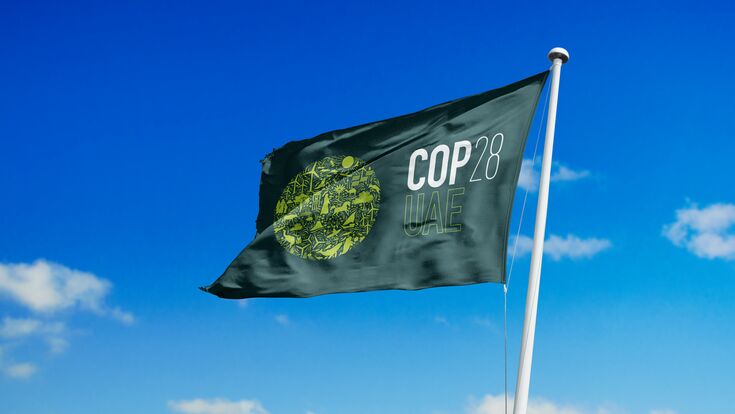Climate Change : COP28 - UN Climate Change Conference went into extra time

"The draft presented does not do justice to the seriousness of the situation. Fossil fuels as the cause of the climate crisis are explicitly mentioned for the first time - but the countless weakenings all around unfortunately clearly outweigh this," said Austrian Environment Minister Leonore Gewessler (Greens). Improvements are now being demanded, she added. "We've already heard enough excuses".
What is upsetting is that the draft text no longer mentions the phase-out of coal, oil and gas demanded by more than 100 countries - unlike in previous versions. A number of countries, including oil-rich Saudi Arabia, as well as China, Iraq, India and Russia, had recently expressed reservations about a resolution to phase out fossil fuels. The UN meeting with around 97,000 participants began on 30 November.
A number of countries, including oil-rich Saudi Arabia as well as China, Iraq, India and Russia, had recently expressed reservations about a decision to phase out fossil fuels. Later that evening, all the heads of delegation met to discuss the muddled situation. Hoekstra and the German Secretary of State for Climate Action Jennifer Morgan also met with the High Ambition Coalition - a group of industrialised and particularly vulnerable countries that wants to lead the way with ambition in the fight against the climate crisis.
Hoekstra wrote on Platform X that the 1.5-degree target agreed in Paris in 2015 for maximum global warming compared to pre-industrial times must be kept alive. "This is what science demands, and this is what our children deserve." The chief negotiator of the Marshall Islands, which are threatened by rising sea levels, John Silk, said that they had not come to Dubai "to sign our death warrant". Among other things, the text lacked concrete instruments to get on the 1.5-degree path at all and to push for the necessary energy transition, especially in many regions of Africa, Asia and Latin America - which these countries had strongly demanded in Dubai. And the passage on fossil fuels falsely suggests that coal, oil and gas could continue to play a decisive role in our future.
From the outset, there had been much criticism of the fact that conference president Sultan al-Jaber is also head of the state oil company Adnoc, and that a good 1,400 lobbyists for coal, oil and gas were officially accredited. Al-Jaber said that the time for discussions was now coming to an end, but also indicated in the evening that he still expected improvements to be made to the text. "We still have many gaps to close," he said. "We need to deliver a result that respects science and keeps the 1.5 degree target within reach." He expects the delegates to be highly ambitious on all points - "also with regard to the language on fossil fuels".
From the environmentalists pressure group Greenpeace's point of view, the draft is a "bitter setback", as the option for a clear fossil fuel phase-out has now completely disappeared, "only a weak concession to reduce fossil fuels around 2050 remains". This is just one of many options, which also include nuclear power or bogus solutions such as carbon storage. "This is not the much-needed signal we need in the fight against the climate crisis," criticised Jasmin Duregger, climate and energy expert at Greenpeace in Austria. The World Wildlife Fund (WWF) described the draft "Global Stocktake" as disappointing, as an agreement was needed on phasing out all fossil fuels - "not just coal, but also oil and gas. What is now on the table is far too unambitious and does not send out the clear political signal that this climate conference must," said WWF climate spokesperson Thomas Zehetner.
